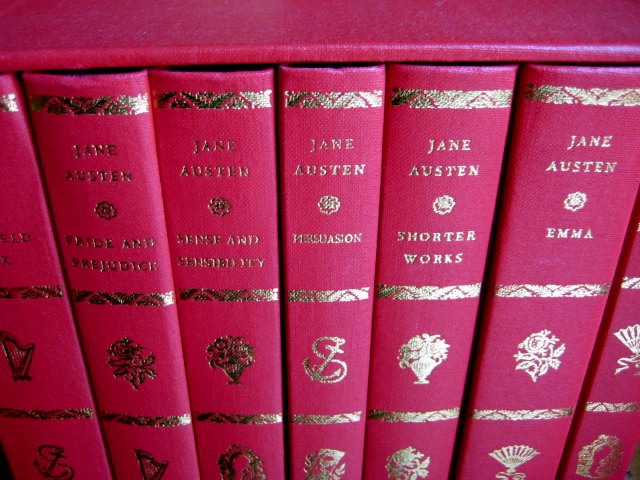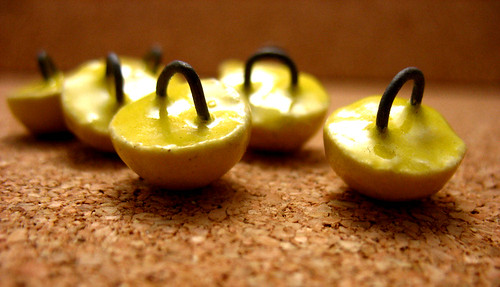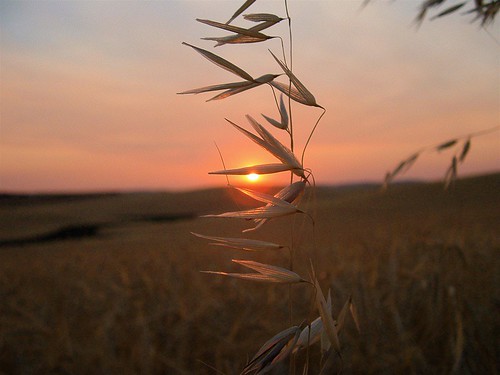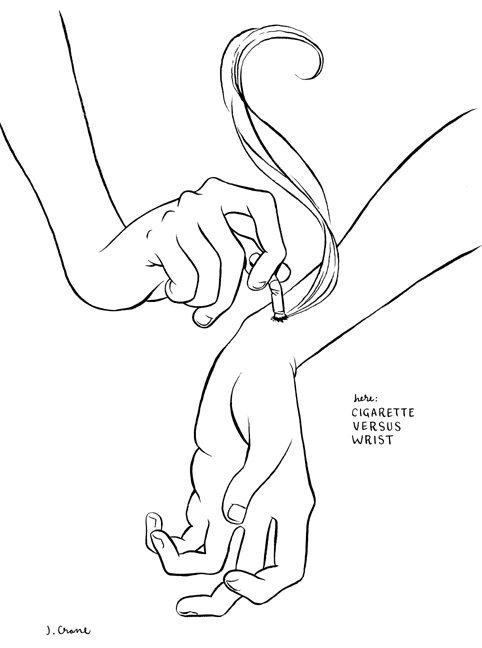Friday, January 11, 2013
without ever once explaining anything
New Year’s Day
BY KIM ADDONIZIO
The rain this morning falls
on the last of the snow
and will wash it away. I can smell
the grass again, and the torn leaves
being eased down into the mud.
The few loves I’ve been allowed
to keep are still sleeping
on the West Coast. Here in Virginia
I walk across the fields with only
a few young cows for company.
Big-boned and shy,
they are like girls I remember
from junior high, who never
spoke, who kept their heads
lowered and their arms crossed against
their new breasts. Those girls
are nearly forty now. Like me,
they must sometimes stand
at a window late at night, looking out
on a silent backyard, at one
rusting lawn chair and the sheer walls
of other people’s houses.
They must lie down some afternoons
and cry hard for whoever used
to make them happiest,
and wonder how their lives
have carried them
this far without ever once
explaining anything. I don’t know
why I’m walking out here
with my coat darkening
and my boots sinking in, coming up
with a mild sucking sound
I like to hear. I don’t care
where those girls are now.
Whatever they’ve made of it
they can have. Today I want
to resolve nothing.
I only want to walk
a little longer in the cold
blessing of the rain,
and lift my face to it.
Thursday, January 10, 2013
resolve.
I'm hoping to do better.
I've never been much for resolutions, and for a while there I had some kind of a well-thought out or at least heavily-emoted argument against New Year's resolutions, but I guess even my resolve not to resolve wore thin.
This year, I have one very small, very achievable goal (okay, one that I'm willing to name publicly and actively pursue — I'd obviously love to be healthy, organized & punctual):
in 2013, I'm going to read more fiction.
So far, the pile on my nightstand reads thusly:
Ann Packer's The Dive from Clausen's Pier (started last night and so far: too much description of what people are wearing),
Kazuo Ishiguro's Never Let Me Go (thrifted and paid for by the pound),
Wendell Berry's That Distant Land (I was so spoiled at Christmas. Also, I just read my first Port William novel this fall, and I am IN) and
Alice Munro's latest, Dear Love (another very much loved Christmas gift. Also, is it possible to read Alice Munro in the summer? I'd never even try).
Sunday, February 13, 2011
drawing words

That said, Essex County won the People's Choice poll with over 50% of the votes -- the people have spoken, in favour of comics!
Friday, February 11, 2011
Some of the best blessings of existence




Wednesday, October 27, 2010
Sunday, August 29, 2010
this is how i work

Wednesday, December 09, 2009
les poux sont retour



Baby heads and googly eyes and tiny beakers, too!
Wednesday, April 01, 2009
She doesn't play tricks.

- This is the way the espresso maker works. You fill the bottom with water to where the screw is. You put espresso coffee grinds into the strainer and fit it in the bottom. Screw the top on and put it on the element turned to high (a small element because my mom recently told me not to put small things on large elements).
- My dad took me into the basement before I left after Christmas. Pieces of paper and photographs and projects on tables all around, laundry escaping baskets in the corner. "I have some books, do any of these interest you?" I take Alice Munro, George Elliot Clarke.
- I read Who Do You Think You Are.
- I take notes, notes about Alice Munro and Canadian women. Notes for a class discussion that will not happen, notes for an exam that is not coming, notes for what? I write notes by hand.
- At the Salvation Army, I buy an impossibly full bag of buttons, colorful old buttons, all shanks (what are the chances of this?) with their proud fronts and practical backs. I have no plans for these buttons, there is no dress in the works that requires hundreds of shank buttons down the back, each its own size and colour. Buttons for what?
- I'm won over by their packaging, a rinsed out and yellowing milk bag with two staples in the top. $2 spent on a rinsed out milk bag and no plans. When she lived with us, my nana would keep milk bags rinsed and folded in the bottom drawer in the kitchen.
- My beardy, thoughtful, 48-year old uncle does the 25 things meme on Facebook and mentions Alice Munro. My notes are probably wrong, then. I've been overfeminizing her, feeling at once too much claim on her and too much distance. I didn't know men liked Alice Munro.
- Alice Munro has a pattern, writing shadows of the same characters and the same stories over and over. Practicing for perfect and welcoming suspicions of autobiography. This is what we have: rural poverty; graphic and vivid experiences of life/death/sex/shame; tweedy, gifted women students who are ahead of their time (here we may meet Atwood, cross paths with each other on a slushy street corner, both cold and shabby and waiting for the street car; ridiculously small adult luxuries that may grow into a strangely unfulfilling freedom or ill-fitting middle class comfort.
- Gravity reverses and parts become a whole. Coffee pours up through the strainer into its holding chamber, and is poured into a pot. Two tablespoons of sugar, the rest of the milk.
- Do I rinse out the bag? Rinse it out, let it dry, fold it over and keep it in a drawer for future purpose? What would I save a milk bag for?
- After dinner, in the living room with our coffees and candles, my best friend practically whispers: "Alice Munro is boring." She says she feels like she has to go out outside and spit 3 times for saying it. Attracting the evil eye of Canadian literature. It's never occured to me, but it might be true. She might be boring. But then, that might just be the trick.
- The sound the buttons make when poured into a pile.
- The sound the coffee makes when poured into a mug.
Thursday, February 12, 2009
you've got outsider art by an artist

Mike Mills is my current visual love.
I like his stuff because it is:
-simple
-heartfelt
-over- and under-wrought at the same time
-Miranda July likes it too
-he is from "Cali"
-www.mikemillsweb.com
He designed the cover of Miranda July's book "No one belongs here more than you." I didn't know anyone designed it. I didn't realize it had been designed.

I thought it was just Helvetica Light.
Monday, April 07, 2008
our lady of seven sorrows

I read a book recently in which a character said that love is the greatest of the seven sorrows. So great, in fact, that he had forgotten the other six.
That reminded me of this.
When I was in grade nine I had two wishes.One was to marry Daniel Johns, who was the lead singer of Silverchair, and with whom I planned to have two children, one named Neon and one named Ballroom.
The other was to be Catholic.
My friend Melissa and I often had sleepovers at her grandmother's house in Peterborough, where we would camp out in the basement and watch the videos for "Anthem for the Year 2000" and Will Smith's "Miami." One weekend while we were there, I got blue streaks dyed into my hair.

Another time, Melissa's grandmother gave me a medal of St. Christopher, the patron saint of travellers, to wear around my neck. My paternal grandfather has been travelling all his life, but he didn't like it -- papism makes him nervous. In 1969, St. Christopher started making the pope nervous. I lost the pendant sometime in 1999.
Thursday, March 13, 2008
the only people for me are the mad ones

Amidst the snow and sadness of the winter, I've been bunking down in the ivory tower (a.k.a. Stauffer Library) with my homeys (see photo) catching up with my first love, the Beats. Though they've become the cliched territory of stoner-buddhas and supposedly high-minded frat boys, I've always felt pretty sincere in my affections for Jack and the boys. I read Dharma Bums for the first time when I was 16, and it felt like waking up--like I'd been asleep for my whole life. In honour of these two crazy kids, long hours at the library for no reason, over-the-counter uppers and late nights (or early mornings) singing along with Dylan, a list.
Top Ten Things To Do in a Kerouac Novel/Poem/Letter
10. Get all confused and hung up.
9. Abstractly refer to Buddhism, God and America. Interchangeably, if possible.
8. Take bennys.
7. Worry about your mother. Refer to your mother, her cat, and your belongings as “the ménage.”
6. Get a ride with/pick up some hitchhiking Okies.
5. “Ball” with girls. Descriptions of said girls should be based on their occupations and hair colour. Note: if in spiritual phase, refer to sex as “yabyum.”
4. Reminisce about your golden youth in a small and snowy New England town.
3. Go and never stop going till you get there. You don’t know where you’re going, but you gotta go.
2. Drink a lot, worry about how much you’re drinking, swear to stop drinking, repeat.
1. Dig/be dug by someone.
Tuesday, January 22, 2008
"It comes to me that fear of death is, from another angle, love of the world."

Originally printed in the Journal (Vol 135's Literary Supplement) in a collection of books for each season, this is the book I've been talking about to anyone to will listen lately.
When I Was Young and In My Prime - Alayna Munce
During the season of short days and long nights, it's easy to find refugre in that which is static--though life, as this book's narrator discovers, rarely stands still. When I Was Young and In My Prime skips between and around generations of one family, telling their stories with raw and beautiful concision, from Mennonite children in revolutionary Ukraine to broken bones on backyard ice rinks in rural Ontario to the painful awkwardness of old age.
Through diary entries, lists, poems and prose, over and over again, Munce nails the everyday, the mundane, with knowledge that comes from the heightened awareness of pain.
Our narrator is a young woman in her mid-twenties living in the Parkdale area of Toronto, who splits her time between waitressing in a bar* and writing. She's a version of Munce, and the book walks a blurred edge between fiction and autobiography--its truth is that palatable.
When I Was Young paradoxically provides comfort in its realism and its simple acceptance of the things that are beginnings, ends and everything in between.
(Need more? The title of this entry comes from the author's description of biking home through Toronto's rush hour, towards the sunset. Truth.)
*Rumour has it the bar she works at in the novel is Mitzi's Sister (pictured above). Live music every night. Queen West at Dowling, or so.
Thursday, January 17, 2008
sometimes a person's hands are the only words she knows

Something new I've stumbled upon this year (one of those so-close-you-trip-over-it discoveries) is the writing of Bronwen Wallace. Born in Kingston, Wallace taught at Queen's and St. Lawrence, worked at Interval House (a women's shelter) and wrote. Wrote, wrote, wrote. Wrote her heart out, wrote till it was spilled out and wrote till it was stitched back up. She had a weekly column in the Whig during the '8os (ahh, the institutional legacy: some comfort in a past that nothing can buy out), she argued about the usefulness of language in feminism with fellow poet Erin Mouré, she wrote intelligent, angry poems about violence against women and she wrote poems about the land north of Kingston in which, through disconnected family lines and dusty county lines, I've come to find something of a home.
Wallace died of cancer in 1989, and I'm feeling the loss of her 20 years late.
If I had a god,
I'd say we were holy and didn't know it,
but I see only what we make of ourselves on earth,
how long it takes for us to love what we are,
what we offer to each other only in our best moments,
but carelessly, without shyness,
like food grown in plenty,
our mouths blessed with it every day.
--Bronwen Wallace, from What It Comes to Mean, in Common Magic, 1985
*This spring, Queen's is hosting a conference called Common Magic: The Legacy of Bronwen Wallace in March. Kingstonians, and others, look here for more. Rumours that Emmylou Harris might be playing were unfounded--the big concert is Kate & Anna McGarrigle.
**Grace O'Connell, former writer for the Queen's Journal, a former "who" of the University's literary "who's," etc. was one of three finalists for the Bronwen Wallace Award for Emerging Writers (the award was recently picked up by RBC and now comes with cashola to the tune of $15 000 for the winner). Marjorie Celona won the award for her story "Othello."
And one more:
It's never easy.
Even the effort of a few steps
from the bedroom to the kitchen, say,
or a few muscles, opening my eyes
to find you still there in bed beside me
is an act of magic or faith,
I'm never sure which.
All I know is that it's learned
by doing, over and over again,
like any other trick,
until you don't need to think about it.
Like now. Like the way I'm walking home
to you through this city I've learned to accept
as the only kind there is: five o'clock,
night coming down and rain
just hard enough
to make the crowds on the corners shove a little
when a bus finally splashes to the stop.
Outside a restaurant, two men shake hands
and a little boy holds his father's
as they watch a toy airplane turning in a shop window.
It could be anywhere. But what I want you to notice
are the women. They are wearing white nurses' shoes,
or dirty sneakers or high-heeled boots.
They carry briefcases and flowers, bags of groceries
as they hurry home to their husbands and kids,
lovers, ailing parents, friends.
We all have the same look somehow.
See: over there by the bank
how that stout woman lowers her eyes
when she passes that group of boys,
how her movement's mimed
by the blonde, turning her head
when a car slows down beside her.
Even the high-pitched giggle of the girls
in that bunch of teenagers is a signal
I've learned to recognize. Tuned in
on my own tightened muscles, jawline or shoulders.
In fact, you might study the shoulders.
The line of the backbone too; arms and hips,
the body carried
like something the woman's not sure what to do with.
I've already told you that this is an ordinary city.
There are maps of it and lights to show us
when to walk, where to turn.
What I want you to know is that it isn't enough.
On a trip to Vancouver once
I discovered clearer landmarks. Red ones,
sprayed on sidewalks all over the city.
They marked the places
where a woman had been raped,
so that when I stepped out of a coffee shop
to find one on the pavement by the laundromat
geography shifted.
Brought me to the city I'd always imagined
happening in dark alleys, deserted parking-lots,
to somebody else. Brought me home in a way,
no longer the victim of rumours or old news,
that red mark planted in the pavement
like the flag of an ancient, immediate war.
I used to hope it was enough
that you are gentle,
that I love you,
but what can enough mean any more,
what can it measure?
How many rapes were enough
for those women in Vancouver
before they got stencils and spray paint
made a word for their rage?
How many more until even that word
lost its meaning
and the enemy was anything that moved out there.
Anything male, that is.
How can any woman say
she loves a man enough
when every city on the planet
is a minefield
she must pick her way through
just to reach him?
It's not that we manage it though.
It's that we make it look so easy.
These women wearing their fear
like a habit of speech or movement
as if this were the way
the female's body's meant to be.
The way I turn the last corner now,
open the door to find you
drinking wine and reading the newspaper,
another glass already filled
and waiting on the coffee-table.
When I turn on the hall light
the city will retreat into the rain,
the tiny squares of yellow
marking the other rooms
where men and women greet each other.
It's a matter of a few steps,
magic or faith, though it's not that simple.
The way the rain keeps watering the cities of the world.
How it throws itself against our window,
harder, more insistent,
so that we both hear.
--Bronwen Wallace, To Get To You, from Common Magic




